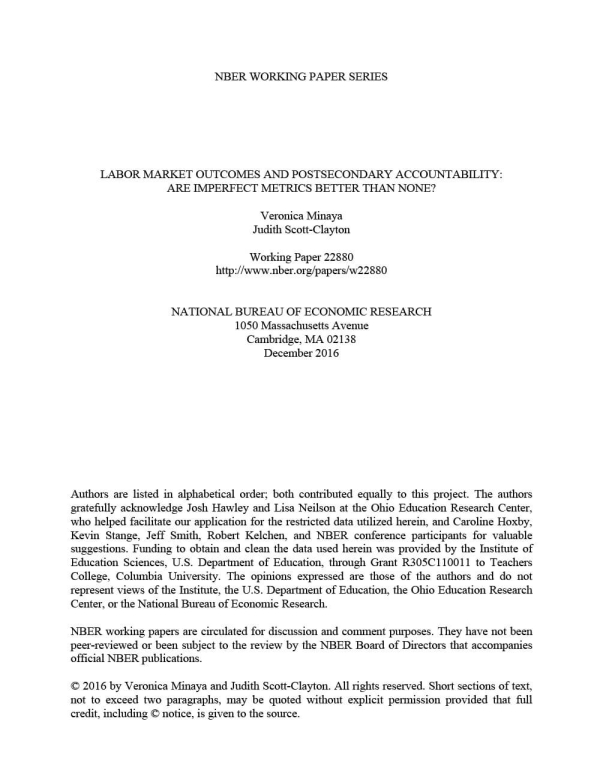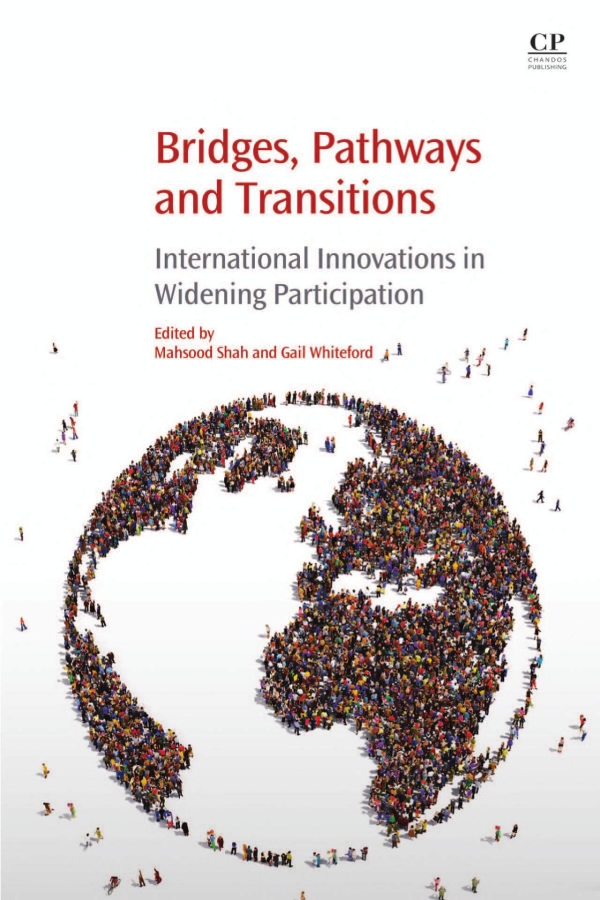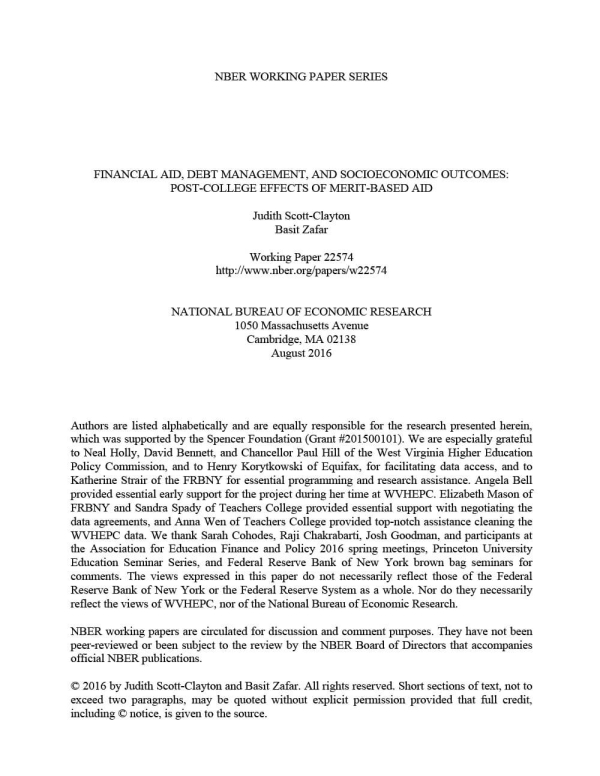Labor Market Outcomes and Postsecondary Accountability: Are Imperfect Metrics Better Than None?

This NBER working paper uses state administrative data and unemployment records to construct a variety of possible institution-level labor market outcome metrics to explore how sensitive institutional ratings are to the choice of labor market metric, length of follow-up, and inclusion of adjustments for student characteristics.
Goodbye to Summer Vacation? The Effects of Summer Enrollment on College and Employment Outcomes

Using proximity to the closest four-year college as an instrumental variable, this CAPSEE working paper analyzes public higher education data from an anonymous state to examine how enrolling in summer credits can impact college and labor market outcomes.
Understanding the Relative Value of Alternative Pathways in Postsecondary Education: Evidence From the State of Virginia

This book chapter replicates and extends analyses completed in other statewide studies and estimates returns to credentials and credit accumulation for first-time college students who enrolled in the Virginia Community College System (VCCS) in 2004–2005 using a classic Mincerian approach.
Financial Aid, Debt Management, and Socioeconomic Outcomes: Post-College Effects of Merit-Based Aid

This paper utilizes two complementary quasi-experimental strategies to identify causal effects of the WV PROMISE scholarship, a broad-based state merit aid program, up to 10 years post–college entry and examine important outcomes that have not previously been examined, including homeownership, neighborhood characteristics, and financial management.
Early Labor Market and Debt Outcomes for Bachelor’s Degree Recipients: Heterogeneity by Institution Type and Major, and Trends Over Time

Using national data on baccalaureate recipients in 1993 and 2008, this CAPSEE working paper examines labor market and debt outcomes four years after students graduate, with a focus on exploring heterogeneity by institution type and major, as well as trends over time.
